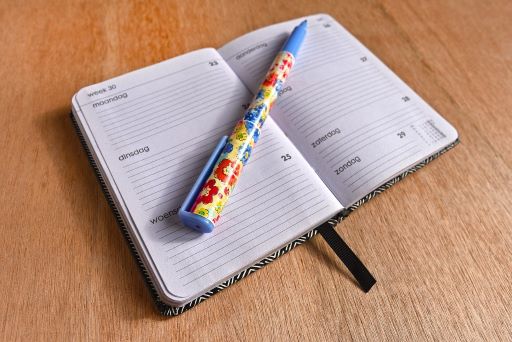The majority of us feel like we’re always playing catch up with our lives. Despite our best intentions and plans, we still get caught up. We feel our days like a whirlwind of tasks and obligations, leaving us feeling drained and unfulfilled.
To add salt to injury, we find ourselves sacrificing what we actually say are the most important things to us. Things like eating healthy, exercising, spending time with loved ones, or even pursuing a hobby.

A strong daily routine can help in unlocking a more balanced and productive life. It provides a sense of structure and helps you prioritize what matters most. So, where do you even begin? Here are 5 ways to develop a daily routine that serves you:
1. Identify Your Needs and Goals:
The best routines are built around your individual needs and goals. Ask yourself: What do I want to achieve in my day? What kind of energy do I want to cultivate? Do I need more time for focused work, relaxation, or spending time with loved ones?
What are my short-term and long-term goals? What tasks must I complete daily to progress toward these goals? What activities boost my mental and physical health?
By understanding your priorities, you can tailor your routine to support them. Your daily goals can change from day to day since it’s difficult to do everything every day.
2. Start Small and Build Gradually:
Don't try to overhaul your entire life overnight. Begin with small, achievable changes. Maybe it's adding a 15-minute morning meditation session or establishing a consistent bedtime. It could be having one healthy meal every day or spending 30 minutes uninterrupted with your loved one(s). Gradually increase the duration and intensity as you become more comfortable.
This approach prevents burnout and increases the likelihood of sticking to your routine. Once these changes become habits, you can gradually add more elements to your routine.
3. Create a Consistent Schedule
Consistency is key to forming lasting habits. Consistency helps regulate your body's internal clock, making it easier to follow a specific routine and, thus habit. Designate specific times for essential activities such as meals, exercise, and work. Setting these tasks' times reduces decision fatigue and ensures that important activities are prioritized.
4. Embrace Flexibility:
Life throws curveballs. Your routine shouldn't be so rigid that it crumbles at the first unexpected event. Build in some wiggle room to accommodate schedule changes or spontaneous opportunities. The key is to find a framework that provides structure while allowing room for adaptation. Have some ‘downtime’ scheduled in your daily routine to take care of such eventualities.
Life is unpredictable, and rigid routines can lead to frustration when things don't go as planned. If you miss a workout or skip a task, don't be too hard on yourself. Adapt your routine as needed and remember that progress is more important than perfection. Flexibility allows you to maintain your routine in the long run without feeling overwhelmed.
5. Track Your Progress and Reflect:
Developing a routine is an ongoing process. Take time regularly to reflect on how your routine is working for you. What elements are aiding your productivity and well-being?
Your routine should evolve as your life changes. Periodically review your routine to ensure it still aligns with your goals and priorities. Reflect on what's working well and what needs adjustment.
Are there activities that no longer serve you? Are there new goals or interests you want to incorporate? Regularly tweaking your routine keeps it relevant and effective. Schedule a monthly or quarterly check-in with yourself to assess and adjust your routine as necessary. Don't be afraid to experiment and adjust your routine over time to ensure it continues to serve you.
Remember: Your daily routine is a tool to empower you, not constrain you. By creating a structure that aligns with your goals and values, you'll be well on your way to a more balanced, fulfilling, and productive life. Developing a strong daily routine that serves you is a journey, not a destination.
By identifying your priorities, starting small, creating a consistent schedule, incorporating flexibility, and regularly reviewing your progress, you can build and maintain a routine that enhances your productivity and well-being. Remember, the key is to find a balance that works for you and to stay adaptable as your life and goals evolve.

